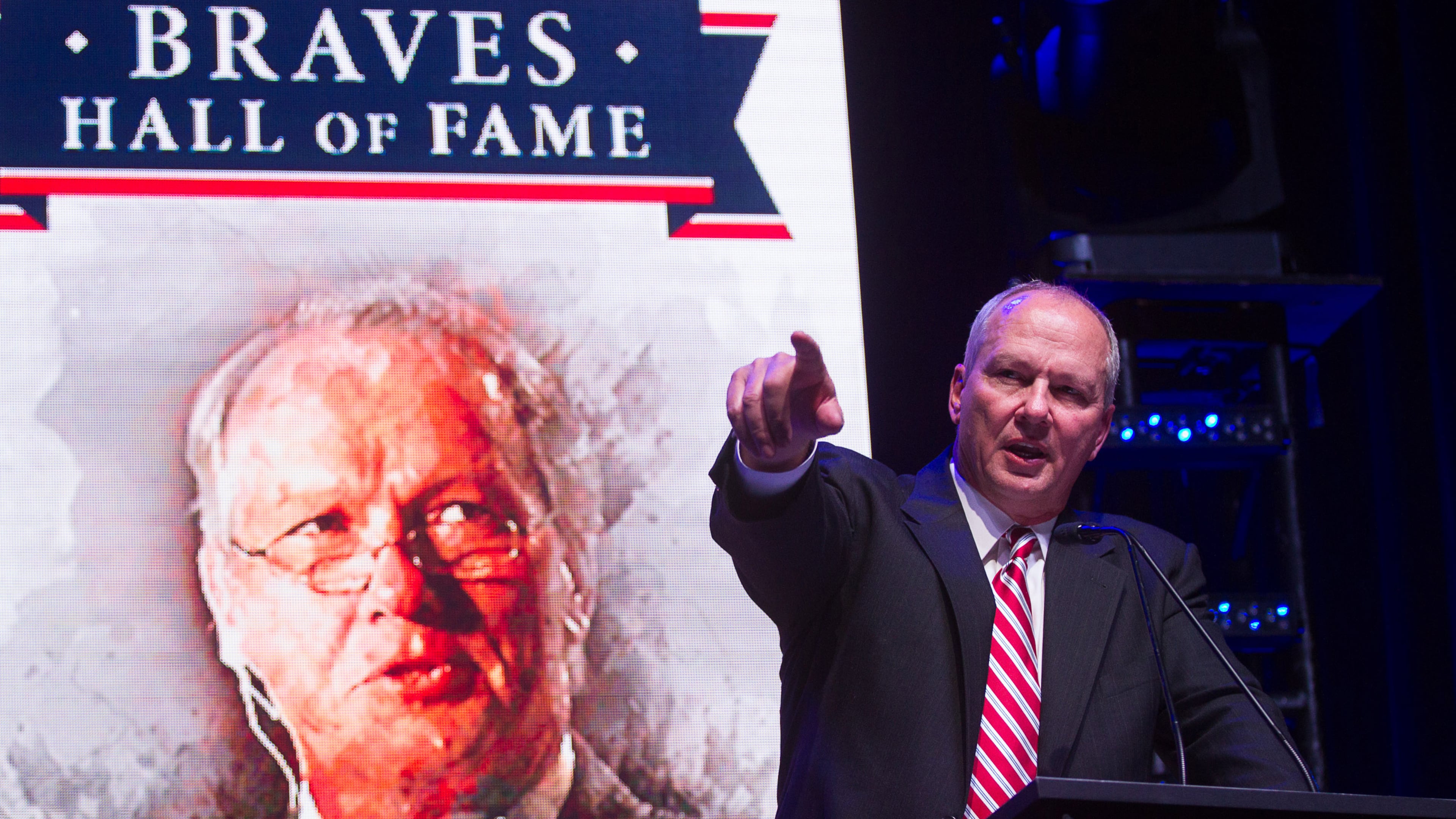Not what the Braves had in mind: Joe Simpson, controversy magnet

Full disclosure: Joe Simpson referred to me, though not by name, as “an idiot journalist” on a postgame show in 2016. Fuller disclosure: I still like Joe Simpson. We have pleasant conversations. We’re not best buds, but we get along.
I emailed him Wednesday to ask if we could speak via phone. His response: “Not much for talking today. It’s all good.” I understood, kind of. Talking is the reason this Braves broadcaster of 27 years has become, er, a talking point.
During the first game of Tuesday’s doubleheader in Washington, the splendid Nationals rookie Juan Soto came to bat. “If he’s 19,” Simpson said on-air, “he’s certainly got his man’s growth.”
The clear implication was that Soto might be older. Age obfuscation once was an issue with players born in the Dominican Republic, as Soto was, but hasn't been lately. As the Washington Post noted in 2002, visas became subject to greater scrutiny after 9/11, and the embarrassment of Danny Almonte – also Dominican – throwing a perfect game for a New York team in the 2001 Little League World Series when he was two years too old was fresh in the mind.
(The Braves, you’ll recall, were surprised to learn that shortstop Rafael Furcal, whom they’d listed as 21, was 23. This revelation came when his visa information was called into question before he reported to spring training in 2002.)
As reported by Ken Rosenthal of The Athletic, Nats president Mike Rizzo approached Simpson between games. "I handled it face-to-face, privately with him," Rizzo said. "I believe he understood my stance."
During Game 2, Simpson said on-air: “If you were here with us in Game 1, you might have heard me make a comment off the top of my head about if (Soto is) 19. Well, he is. He’s a bona fide 19.”
By then, others had seized on the story. From Jesse Yomtov of USA Today: "The idea that Soto is lying about his age is one that's never been raised before, and there's certainly a racial undertone behind Simpson's remark."
From Jeff Passan of Yahoo Sports, via Twitter: "Joe Simpson is stuck in the past, so it's not a surprise that he proffers this sort of garbage. Ignore it."
Was Simpson’s remark meant as an innocuous ad-lib, or was there malign intent? Another question: Had this been a one-time thing, would it have caused the same stir?
On July 28, Simpson ripped the Dodgers for wearing T-shirts and pulled-up pants during batting practice at SunTrust Park. This was not an aside. It went on for 90 seconds. The Braves’ TV folks offered accompanying video. “If I were a Dodger fan, I'd be embarrassed,” Simpson said, “and I don't know how Major League Baseball allows such attire when the gates are open.”
He said of Chase Utley: “That was an embarrassment, what he had on.” Utley wore a T-short bearing the imprint “K Cancer,” referring to a charity started by pitcher Jason Motte, who was briefly a Brave.
The next morning, Dodgers manager Dave Roberts labeled Simpson's attack as "a cheap shot" and "just unfair." He called Utley "the consummate professional." Simpson met with Utley, later telling esteemed AJC colleague Tim Tucker: "It was a good talk and it's done."
Last year, as the Braves were trailing Milwaukee at SunTrust, Simpson said: “The Braves are getting smoked here, they just gave up another run, and the organist is playing songs for the (opposing) team, the guys walking up to the plate … like everybody’s holding hands and singing ‘Kumbaya.’ I don’t get it.”
Note that this was a Braves’ home game, and that the organist in question was Matthew Kaminski, whose walk-up song choices for visiting players are witty and brain-teasing. Note also that playing music is what the Braves pay Kaminski to do. The Braves were losing; ergo, Joe Simpson was ticked.
Apologies for playing Dr. Freud, but I wonder if Simpson’s love for the Braves has come to trump all else. He rarely criticizes a Brave, while praise for an opponent seems offered through gritted teeth. I can’t imagine him suggesting that Ronald Acuna, say, is older than 20. Joe Simpson has become, if you will, Homer Simpson.
But should we be surprised? Technically he’s paid by Fox, but he travels with the Braves. He addresses an audience that follows the Braves. There was time when many team announcers sought to be, if not neutral, then not overt. (Exception: Larry Munson. He was overt. He was also great.) Club-affiliated broadcasters are now expected to rejoice over every home run, to gripe without end about every umpiring affront. They’re still lumped among “the media,” but they’re really – this is not meant as criticism – a promotional arm of the club.
Simpson is the Braves’ leading ambassador. He emcees official functions. He was inducted into their Hall of Fame this year. As the main TV commentator, his opinions are the most-heard across Braves County. In sum, he’s a big deal. And yet: On Wednesday, a Braves’ representative declined comment on Simpson.
No MLB club is thrilled when a representative makes headlines like the one that topped Awful Announcing: "Braves analyst Joe Simpson creates even more controversy." No club cares to see its leading voice characterized, as was the case on NBC's Hardball Talk, as "an angry old white guy."
I’m not sure if Simpson is giving his audience what he truly believes or what he thinks it wants, but he really is – I offer this as someone of similar age and demographic background – coming across as crabby. That needs to change.

